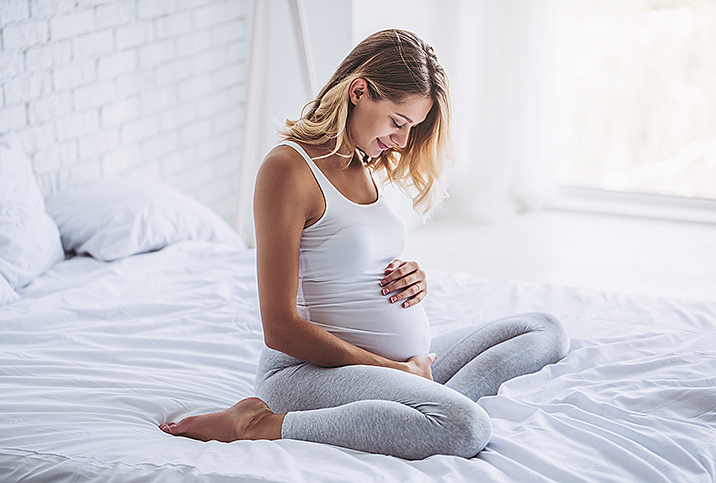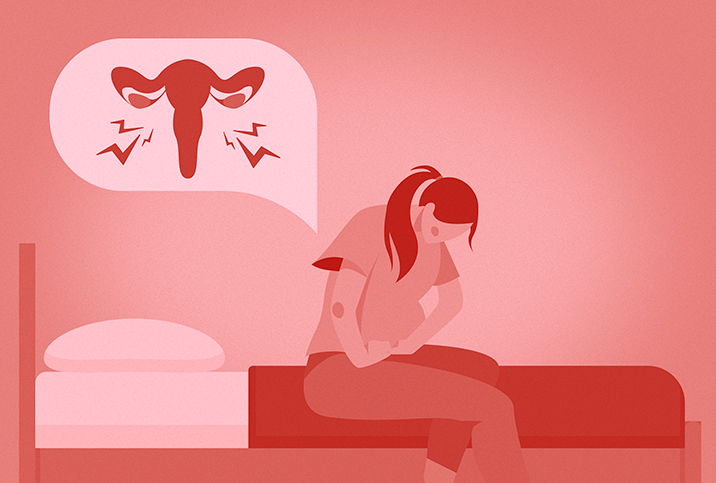How Sex During Pregnancy Affects the Unborn Baby

All kinds of myths and misconceptions persist concerning sex during pregnancy. Some people believe a person's sex drive reduces drastically during pregnancy; others believe having sex or enjoying an orgasm can harm an unborn child. Rather than rely on word of mouth, it's time to hear from the experts.
"In a normal, low-risk pregnancy, sexual activity will not affect fetus and pregnancy," said Mozhgan Sayyad, M.D., an OB-GYN in Dubai, United Arab Emirates, and a member of the International Society of Sexual Medicine (ISSM). "A fetus is protected by amniotic fluid, closed cervical canal, cervical mucosa plaque—a thick, sticky mucosa inside the cervical canal—and uterine muscles."
However, anatomical and hormonal changes during pregnancy can make some women feel vaginal dryness, discomfort and less sexual desire at some point during their pregnancy.
Pregnancy and sex
During pregnancy, fluctuations in the hormones estrogen and progesterone, combined with increased blood flow to the genitals, can heighten sex drive. For some women, however, hormonal changes and round ligament stretching make sex painful.
"Pregnancy can impact sexuality in many ways depending on how you experience your pregnancy—both physically and mentally—and also how your partner experiences pregnancy, as their sexual life can change, as well," said Camille Bataillon, a clinical sexologist and author in Belgium.
While sex during pregnancy can be orgasmic for some women, for others it can prove uncomfortable and even painful. "This varies between women, pregnancies and even trimesters," Bataillon explained.
While women react differently to hormonal changes during pregnancy, most commonly, sex drive decreases during the first trimester, peaks in the second trimester and declines again in the third trimester.
Irrespective of your sexual experience during your pregnancy, Bataillon recommends you share your doubts and questions with relationship professionals and sexologists. Pregnancy is an adventure full of twists and turns, so don't hesitate to have someone accompany you through each phase. Below are common questions that may arise and their potentially surprising answers.
Can orgasm cause miscarriage?
The claim of orgasm causing miscarriage is not evidence-backed. Unless medically contraindicated, having sex and reaching climax does not cause miscarriage.
Miscarriages are not rare and can be physically and psychologically painful. Between 10 percent and 20 percent of pregnancies end in miscarriage, though there could be more considering they can happen before a diagnosis has been made. However, they are often the result of a fetus not developing properly, completely unrelated to orgasm.
"Miscarriage has nothing to do with what you did or did not do," Bataillon explained. "It can, unfortunately, be part of the adventure of pregnancy."
When should sex be avoided during pregnancy?
Although intercourse during pregnancy is considered generally safe, Sayyad suggested that any of the following conditions may be a good reason to abstain:
- Leaking amniotic fluid
- Unexplained vaginal bleeding
- Premature opening of the cervix, known as cervical incompetence or cervical insufficiency
- The placenta completely or partially covering the cervical opening, known as placenta previa
- A history of preterm labor or premature birth
It is always best to check with your doctor to ensure sex is safe for you throughout your pregnancy.
What is the best sex position during pregnancy?
Expectant couples often worry about having sex in a position that could affect the baby. But the expert viewpoint makes the solution simple.
"The best sex positions are the ones that suit you," Bataillon explained.
Ensure whichever sex position you are going for is comfortable and not painful. Listen to what your body is telling you and don't hesitate to talk with your partner if something's not working for you and you need to make adjustments.
While sex positions and sexual satisfaction differ for everyone, in general, it's best to keep weight and pressure off your belly—but keep in mind, staying off your back helps avoid blood flow compression.
Sex positions you might like to try include cowgirl (receiving partner on top), doggy-style (penetration from behind), sex while sitting and side-by-side sex.
Is anal sex safe during pregnancy?
Having anal sex during pregnancy can cause accidental rips and tears, potentially leading to severe bleeding in the anus.
"For many reasons, anal sex may not be safe during pregnancy," Sayyad advised. "This is because pregnancy usually causes engorgement of the blood vessels—particularly the veins in the anal canal—leading to a condition known as hemorrhoids, which can be painful and uncomfortable and can cause anal itching and bleeding."
What are other ways to be intimate during pregnancy?
Penetrative sex is not the only way to achieve intimacy during pregnancy. You and your partner can enjoy oral sex, caresses, fondling, use of nonpenetrative sex toys, and kisses all over the body.
"Pregnancy is a great time to connect intimately in a way you may not be used to," Bataillon added.
How soon can a woman have sex after childbirth?
The length of time a woman should wait to have sex after childbirth depends on whether the delivery was vaginal or cesarean, and whether it involved an episiotomy, where an incision of the perineum and the posterior vaginal wall is performed to make the vaginal opening larger. It's also important to factor in the health status of the mother, because the birthing process can sometimes introduce infection.
"Usually, you need at least four to six weeks for stitches to heal and the body to recover," Sayyad said. "Women need to check with their doctor to ensure sex is safe for them."
For a woman who has had an uncomplicated vaginal delivery without episiotomy, Sayyad said that as long as bleeding has ceased, she can resume sexual activities after four weeks. If you feel discomfort at any point, stop; consider talking to your doctor if the discomfort or pain is persistent.

















